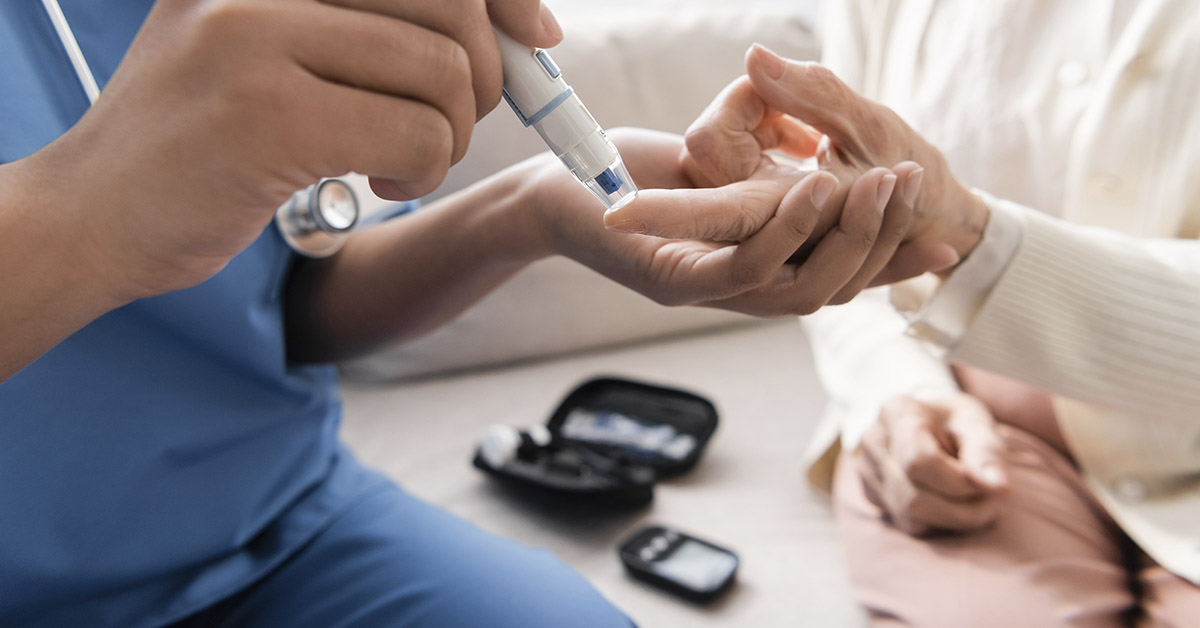Did you know that a simple change in the appearance of your neck could be a subtle sign of a serious medical condition like diabetes? According to Dr. Shah, a popular dermatologist known on TikTok as @dermdoctor, there is a specific condition that could be warning that you have diabetes, and often the first place you will see it is on your neck. This is what you should keep an eye out for.
Understanding Diabetes
Diabetes is a chronic medical condition affecting how your body metabolizes glucose, a type of sugar that serves as energy. It affects an estimated 537 million adults worldwide, meaning that 1 in every 10 people are living with Diabetes.There are two main types of diabetes (1):
- Type 1 diabetes: This type is usually diagnosed during childhood or adolescence and is characterized by the body’s inability to produce insulin. Insulin is a hormone that allows glucose to enter cells and be used for energy.
- Type 2 diabetes: This type is more common and often develops later in life. It occurs when the body becomes resistant to the effects of insulin or doesn’t produce enough insulin to meet the body’s needs. While there is a genetic component, it is generally caused by poor lifestyle habits and obesity.
Read: Eruptive Xanthomatosis Is A Skin Condition No One Should Ignore
Acanthosis Nigricans: An Early Warning Sign
Acanthosis nigricans is a skin condition characterized by dark, velvety patches on various parts of the body, most commonly on the neck, armpits, groin, and skin folds. According to Dr. Shah, these subtle changes in the skin can be an early indicator of diabetes. (2)
@dermdoctor Do you have darker neck? This is acanthosis nigricans… you’re not dirty! This is a thickening of the skin Causes include diabetes, genetics, PCOS, malignancies, and other conditions that stimulate growth factors to thicken the skin Treatment aims at normalizing skin thickneess with exfoliants like lactic acid (amlactin) and urea (cetaphil rough and bumpy). Retinoids like adapalene also help! #dermatologist ♬ original sound – DermDoctor | Dr. Shah
“Do you have a darker neck?” Dr. Shah wrote in his caption. “This is acanthosis nigricans… you’re not dirty! This is a thickening of the skin. Causes include diabetes, genetics, PCOS, malignancies, and other conditions that stimulate growth factors to thicken the skin. Treatment aims at normalizing skin thickness with exfoliants like lactic acid (amlactin) and urea (cetaphil rough and bumpy). Retinoids like adapalene also help!” (3)
Acanthosis nigricans is primarily associated with insulin resistance, a condition in which the body’s cells become less responsive to the effects of insulin. This leads to elevated blood sugar levels and can eventually result in the development of type 2 diabetes. However, it is important to note that Acanthosis nigricans can also be a sign of other underlying medical conditions, such as polycystic ovary syndrome (PCOS) and thyroid disorders.
Treating Acanthosis Nigricans: Addressing the Underlying Cause
While dermatological treatments are available to improve the appearance of Acanthosis nigricans, the most effective approach is treating the underlying cause. In this case, addressing diabetes can often lead to a significant reduction or even disappearance of the skin condition.
For individuals with type 2 diabetes, managing blood sugar levels through lifestyle modifications and, in some cases, medication can help normalize insulin levels and improve insulin sensitivity. Lifestyle modifications refer to eating a healthy diet that is low in fat and sugar and high in vegetables and fiber. It also means moving more – getting regular, daily exercise and avoiding the use of alcohol and tobacco products. It means managing blood sugar levels and losing weight if you are overweight or obese. This, in turn, can alleviate the symptoms of Acanthosis nigricans.
Always Talk To A Doctor
It is crucial to consult a healthcare professional, such as a dermatologist or endocrinologist, if you notice any changes in your skin, particularly if you suspect it may be linked to diabetes. Early detection and intervention can help prevent future complications and improve overall health. Remember, your skin can sometimes provide valuable clues about your overall health. If you spot any concerning changes on your neck or other areas of your body, it’s always best to seek medical advice from a qualified healthcare provider.
Keep Reading: Sepsis Causes Far More Deaths Than Thought
Sources
- “Diabetes around the world in 2021.“ Diabetes Atlas
- “Everything You Need to Know About Acanthosis Nigricans.” Healthline. Janet Barwell. April 21, 2023
- Tiktok. Dermdoctor.

